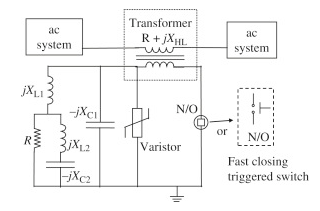To the OP.
Are you sure you are talking about a 'normal' diode, and not a 'special' type of (apparently chaotic) diode?
I am talking about ordinary signal diode, power diodes, zener diodes, tunnel diodes.
Have any of you even opened the Science Direct link I gave before?
From here (a page that is apparently invisible to many browsers)
https://www.sciencedirect.com/topics/engineering/nonlinear-resistorNonlinear ResistorNonlinear resistors have a common characteristic that their constitutive relationships are described by nonlinear algebraic equations.
From:
The Electrical Engineering Handbook, 2005
From: A.C. Fischer-Cripps, in
Newnes Interfacing Companion, 2002
3.3.7 Log amplifier
A
non-linear resistor is connected into the feedback circuit. In practice, this
can be a diode, but
a transistor connected as a diode is used since the forward biased transfer function is more accurately exponential. The exponential nature of the forward biased diode leads to a logarithmic decrease in gain of the circuit as the input signal is increased.

From: A Gavrilović OBE, in
Electrical Engineer's Reference Book (Sixteenth Edition), 2003
32.6.3 Surge arresters
The zinc-oxide
non-linear resistor material used in modern surge arresters exhibits a very high impedance at normal applied voltage whilst at a voltage only some 50% higher a very low impedance is provided. The extremely non-linear relationship between voltage and current shown in Figure 32.20, has rendered obsolete the spark gaps which were a feature of previous arresters based on silicon carbide.
From: I.D. Mayergoyz, W. Lawson, in
Basic Electric Circuit Theory, 1997
EXAMPLE 5.5 A Voltage Regulator Circuit
Consider the circuit shown in Figure 5.31, where a load resistor RL is connected in parallel with
a nonlinear resistor characterized by the v1(i) curve shown in Figure 5.32. This curve exhibits “voltage saturation.” In other words, it has an almost horizontal (flat) portion which starts from small current values. We would like to find all currents and voltages in this circuit.

[note1: you know what is that curious component represented by a resistor symbol with two lines? It's a zener diode. A special kind of nonlinear resistor]
[note2: the above book as a section titled "Non-linear resistive circuits" where nonlinear resistors are introduced and diode and zener diode are used as examples of nonlinear resistors]
From YIN Jijun, ... LI Peng, in
Unified Power Flow Controller Technology and Application, 2017
6.1.1.2.4 Metal oxide surge arresters
Gapless metal oxide surge arresters are used in a UPFC. In the simulation model, they can be replaced by
nonlinear resistors. The nonlinear volt-ampere characteristics of valves are shown in Fig. 6.5.

From: Nasser Tleis BSc (Hons), MSc, PhD, CEng, FIET, M-CIGRE, in
Power Systems Modelling and Fault Analysis (Second Edition), 2019
10.4.8 Passive damped resonant limiter
Fig. 10.10 illustrates one phase of a three-phase damped resonant limiter circuit that uses only passive components.

The limiter consists of an isolation transformer whose primary winding is connected in series with the ac system and a capacitor is connected across its secondary winding.
A nonlinear resistor, for example, a varistor, or a fast-closing triggered switch, is connected in parallel with the capacitor, and a damped tuned filter is connected in parallel with the capacitor/varistor. Under normal unfaulted system condition, the secondary circuit appears as a capacitor at 50 Hz that, when transferred to the primary of the transformer, is equal to and hence cancels out the transformer’s leakage reactance. Therefore, at 50 Hz, the limiter appears as a short circuit except for the resistance of the transformer.
So, I hope there will be no more discussion about the usage of the term "nonlinear resistor". It is not a novel invention by Chua alone. It is a well known and estabilished term that encompasses, among others, diodes, transistors connected as diodes, zener diodes, varistors, incandescent lamps, neon lamps, etc. etc. etc.
I think we are left with the doubt if nonlinear
resistors are...
resistors. No kidding.